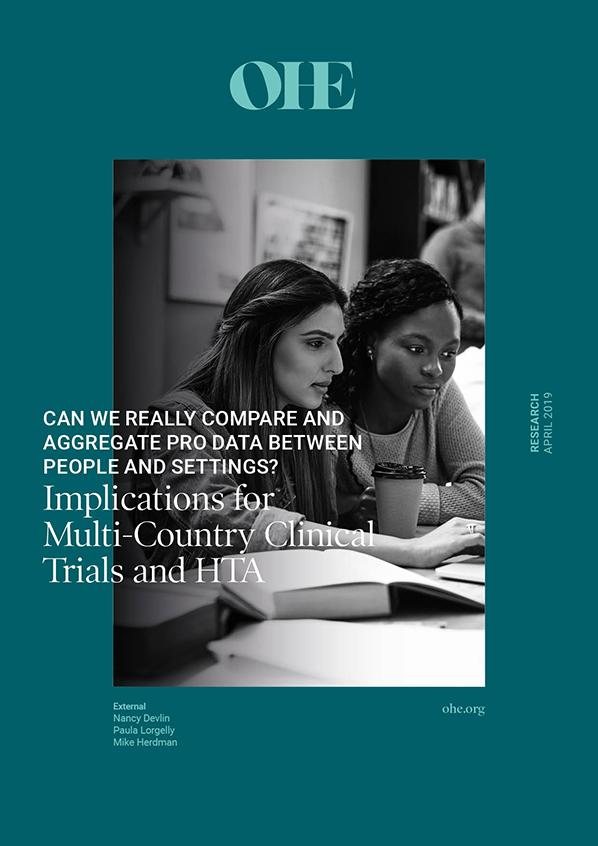Can We Really Compare and Aggregate PRO Data Between People and Settings? Implications for Multi-Country Clinical Trials and HTA
The aim of this paper is to provide an overview of the issues that might limit comparability of PRO data and to highlight some of the evidence that exists on these issues. We note some of the implications for the development and use of PRO instruments, for their application in multi-country clinical trials, and for employing evidence from them in regulatory and reimbursement decisions. Although much progress has been made in this area, there is still scope for further research and improvement. Numerous factors can affect the comparability of PRO data across (and potentially within) countries and cultures. Failure to recognise and account for these differences could lead to incorrect conclusions about the effectiveness and cost effectiveness of new medicines and other health care interventions. We suggest areas where further research and enhanced guidelines for users of PRO instruments and data would be useful.
The aim of this paper is to provide an overview of the issues that might limit comparability of PRO data and to highlight some of the evidence that exists on these issues. We note some of the implications for the development and use of PRO instruments, for their application in multi-country clinical trials, and for employing evidence from them in regulatory and reimbursement decisions. Although much progress has been made in this area, there is still scope for further research and improvement. Numerous factors can affect the comparability of PRO data across (and potentially within) countries and cultures. Failure to recognise and account for these differences could lead to incorrect conclusions about the effectiveness and cost effectiveness of new medicines and other health care interventions. We suggest areas where further research and enhanced guidelines for users of PRO instruments and data would be useful.
Clinical trials are increasingly being conducted across multiple countries and regions. The collection of patient-reported outcome (PRO) data in these trials, and the practice of pooling data from them in analysis, relies on patients’ responses to PRO instruments being strictly comparable.
There are two aspects of this assumption: (a) that the PRO instruments themselves generate responses which are strictly comparable when fielded in different contexts; and (b) that the way in which people from different socio-economic or cultural groups self-report their health on those instruments is fundamentally the same.
The aim of this paper is to provide an overview of the issues that might limit comparability of PRO data and to highlight some of the evidence that exists on these issues. We note some of the implications for the development and use of PRO instruments, for their application in multi-country clinical trials, and for employing evidence from them in regulatory and reimbursement decisions. Although much progress has been made in this area, there is still scope for further research and improvement. Numerous factors can affect the comparability of PRO data across (and potentially within) countries and cultures. Failure to recognise and account for these differences could lead to incorrect conclusions about the effectiveness and cost effectiveness of new medicines and other health care interventions. We suggest areas where further research and enhanced guidelines for users of PRO instruments and data would be useful.


